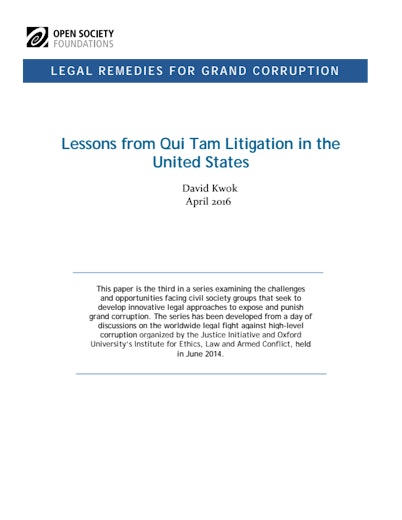Lessons from Qui Tam Litigation in the United States
Qui tam litigation is a distinctive form of private litigation, allowing a private party (known as a “relator”) to sue “on behalf of the king," or the government. In the United States, qui tam litigation today exists primarily under the False Claims Act, a statute forbidding fraud against the federal government. If a private party discovers that a company has been defrauding the federal government, the private party can litigate against the company and receive a share of the penalties.
Qui tam actions have been credited with tremendous growth in prosecutions for fraud in the U.S. But David Kwok argues in this paper that developing countries should be cautious in any attempt to emulate the U.S. system. While many U.S. whistleblowers have brought evidence of fraud because of qui tam legislation, this success has relied on distinctive aspects of the U.S. system not necessarily present in developing countries. In particular, the fact that whistleblowers who act without the support of the federal government have been extremely unsuccessful in bringing qui tam litigation reveals the crucial role of strong prosecutorial leadership. Without this element, developing countries should have little expectation of replicating the benefits of U.S. qui tam legislation.
Topics
- Climate Justice
- Digital Rights and Fair Elections
- Discrimination and Racial Justice
- International Crimes
